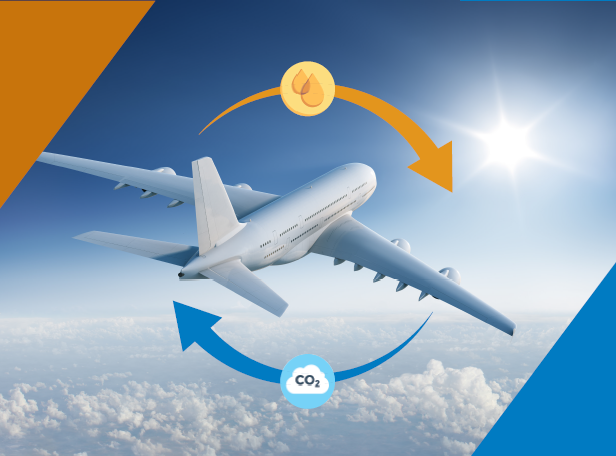In October 2021, the Energy Division of the National Academy of Technologies of France launched a study on the decarbonisation of aviation, and more specifically on the large-scale production of sustainable fuels.
The relative share of greenhouse gas (GHG) emissions from the aviation sector has been growing steadily for the past 30 years, despite significant improvements in technological performance. There are a limited number of options for the aviation sector to decarbonise its operations. Sustainable Aviation Fuels (SAF) is the measure that will contribute the most for decarbonising aviation, while its compatibility with existing infrastructure facilitates its penetration.
The next ten years are decisive for setting up a realistic industrial trajectory to ensure the effective availability of SAF, on the scale needed and with the right momentum. The concrete implementation of this trajectory from the beginning of the next decade will be critical for the achievement of the decarbonisation objectives by 2050, as set by the players in the aviation sector and soon to be imposed by the European directive currently being debated on the subject.
The scope of the study is therefore to examine the first steps of an energy and industrial policy that will enable the production of SAF on the scale needed in the next decade.
The production of SAF requires the harnessing of a considerable amount of biomass and low-carbon electricity. Given the limited availability of biomass, the growing need for SAF will be met by synthetic jet fuel production in the first half of the next decade. The critical resource then becomes low-carbon electricity.
Because of its already decarbonised electricity mix, France is one of the few countries that can consider rapidly deploying an industrial SAF production chain on its territory, and this beyond the limits imposed by the availability of biomass. Without requiring a major discontinuity in the evolution of its mix, France will be able to meet its SAF needs until 2040, with, however, a significant increase in electricity generating capacity beyond that time frame. The associated production costs, at technological maturity, could be close to €2500 per tonne of synthetic jet fuel, i.e. a carbon abatement cost of around €300 per tonne of CO2.
Download the Report: Report on SAF – Academy of technologies of France – 2023
Download the Position paper: Position paper – Decarbonisation of aviation – National Academy of technologies of France 2023



The comment area